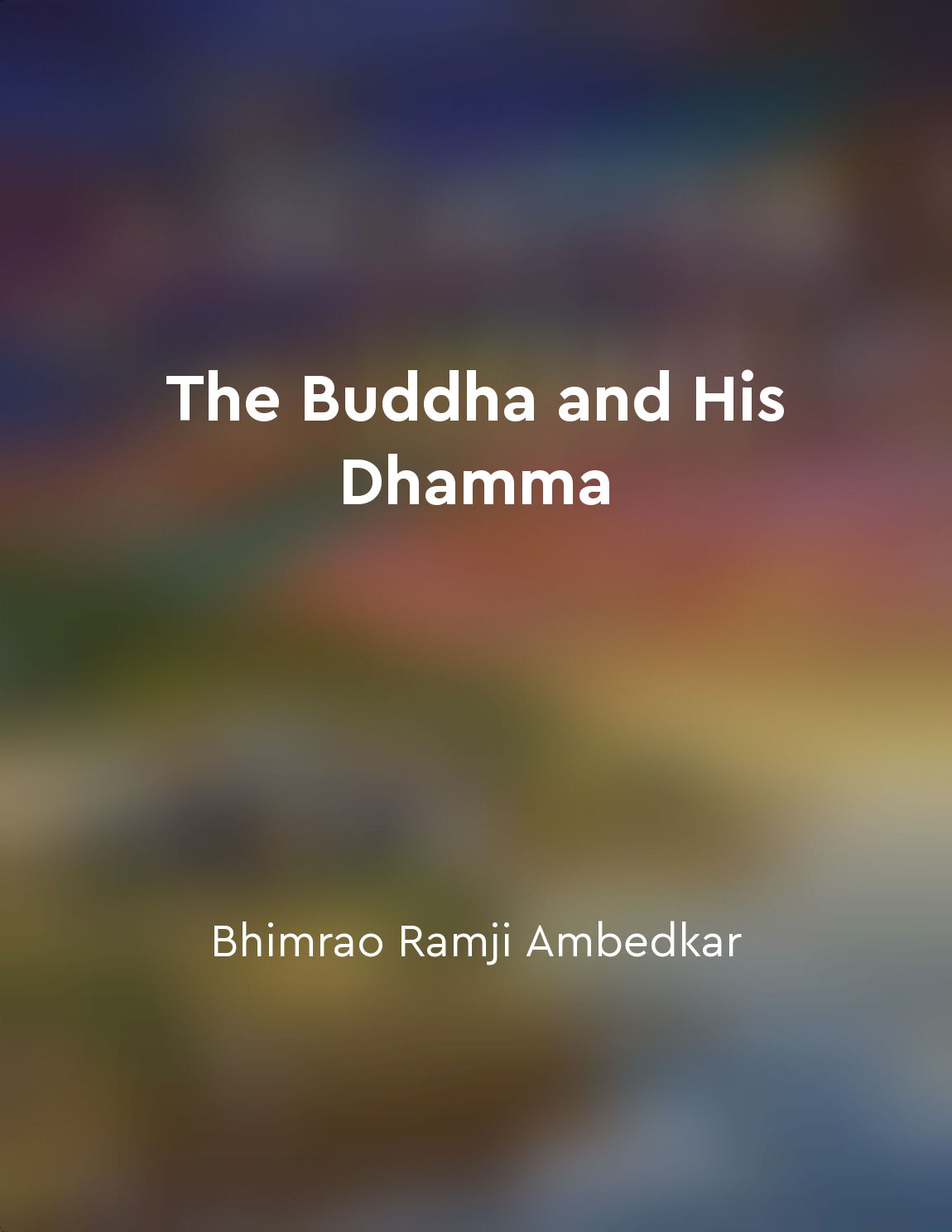Practicing nonviolence and non-harming promotes harmony from "summary" of The Buddha and His Dhamma by Bhimrao Ramji Ambedkar
The Buddha taught that nonviolence and non-harming are essential practices for promoting harmony in society. By refraining from causing harm to others, whether through physical violence, verbal abuse, or any form of cruelty, individuals can cultivate a peaceful environment where mutual respect and understanding can thrive. This principle of nonviolence, known as ahimsa, is central to the teachings of Buddhism and is seen as a fundamental moral precept for living a compassionate and ethical life. When individuals commit to practicing nonviolence and non-harming in their thoughts, words, and actions, they contribute to the creation of a harmonious community based on kindness and empathy. By treating others with respect and compassion, individuals can build positive relationships a...Similar Posts
Buddha and Karl Marx offer different paths to social transformation
Babasaheb Ambedkar delves into the contrasting approaches to social transformation advocated by Buddha and Karl Marx in his wor...

Buddha's teachings promote harmony within oneself and with others
The teachings of the Buddha emphasize the importance of achieving harmony within oneself and with others. This harmony is seen ...
Empathy bridges the gap between individuals
Empathy, as a fundamental component of Nonviolent Communication, plays a crucial role in fostering connection and understanding...

Reflecting on ancient wisdom can guide us in the present
Looking back to the teachings of ancient civilizations can offer us valuable insights and guidance for navigating the complexit...

Buddha's teachings revolve around the Dhamma
The teachings of the Buddha are centered on the Dhamma, which is the fundamental principle underlying his philosophy. The Dhamm...
